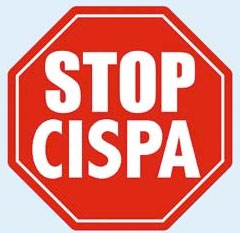As some of you may have gathered, I do a lot of reading, especially about history, politics, and current events. Over the past few months, I’ve noticed a new theme starting to grow, first in comments, then in mainstream articles wherein the writers have begun to question the salaries earned by public sector employees at the taxpayers expense.
I am not commenting on whether or not public sector employees make too much, not enough, or whether what they do is of benefit to the people paying for it. Instead, I am considering what may be the first casualty of the coming taxpayer revolution against bloated government: public sector pay.
Let’s face it. Most taxpayers have no idea what most public sector employees do for a living outside vague notions of the jobs people like teachers, police officers, or firefighters have. Even with jobs the taxpayers think they understand, I suspect most taxpayers think people doing those jobs get paid too much, take advantage of the system, and (perhaps worst of all) could not get jobs elsewhere.
Having been a public sector employee at one time, I can see how the taxpayers might get that impression, which is why I think it is so easy for the taxpayers, angry at the situation we find our nation in but yet unwilling to realize the solution means they will have to make sacrifices, to think that part of the solution is to pay public sector employees less.
Unfortunately, if history is any indication of future trends, the employees who will be targeted by this anger will be the ones who least deserve it. The taxpayers will target local public sector employees–teachers, police officers, fire fighters, etc–who they depend on the most while ignoring the excesses carried out by the actual guilty parties–elected officials and career bureaucrats.
I think if history does repeat itself, the problem this time will be that many public sector employees will just quit. It will be impossible for the taxpayers to demand that, say, teachers begin their careers at 22 with master’s degrees, engage in constant professional development, put up with the taxpayers undisciplined and incapable children, and deal with the never-ending onslaught of government regulations for laborers wages. Take your pick of public sector employees, and you will find similar ridiculous notions.
I am not saying that there are not public sector employees–even teachers, police officers, and fire fighters–who do not get paid more than they should, take advantage of the system, and could not get jobs elsewhere. I am saying that the tendency is for the taxpayers to pick on the public sector employees they rely on the most because they are the most visible and the most accessible.
If we look at the history of such reactions, what we discover is that the governments enduring them and the people making them often fare badly. In the worst cases, the governments collapsed or the nations thrust themselves into civil war. In the best cases, nations endured long periods of malaise.
As a nation, we need to tackle the problems before us, and I understand that even public sector pay needs to be reformed if we are going to find our way out of the mess we’re in. I also understand that making irrational decisions based on anger rarely produces positive outcomes. Consider your demands carefully, because they will have consequences if they become reality.
DLH

